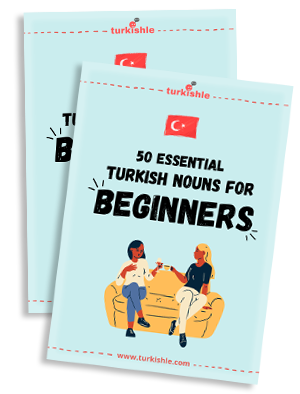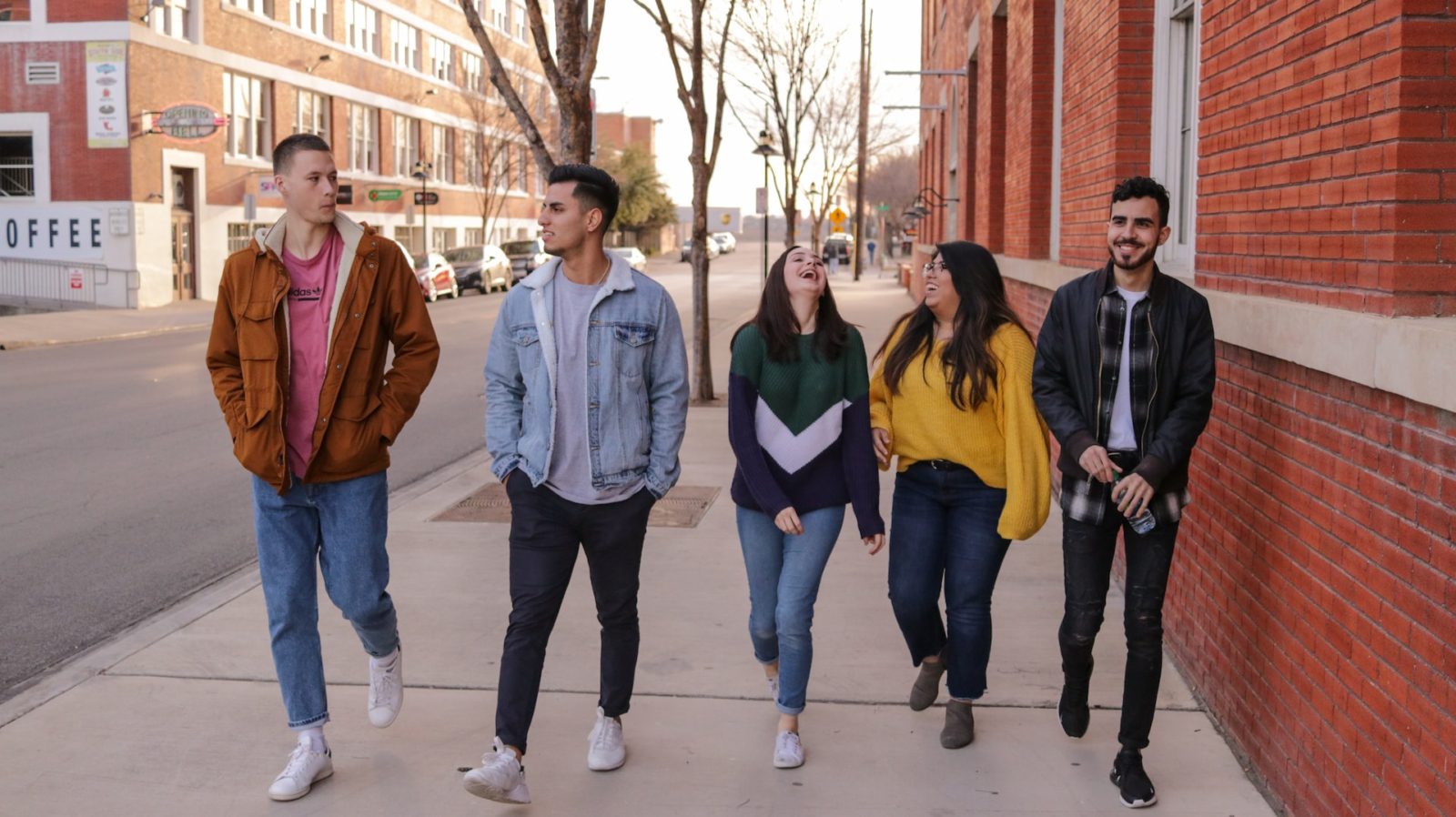10 Jargon That Teenagers Use in Turkish
Jargon in Turkish, Time passes and not only people are changing but also languages are evolving. We are witnessing everything, like technology, for example, changing and adapting to today’s world very quickly. And as we move forward and evolve, the way we think, and the way we perceive things convert into something new and all these affect our culture like how domino stones collapse. So, we observe that cultural change also has a huge impact on language. When culture changes and evolves, the way you speak and communicate also changes. Even some 90s kids – millennium people- sometimes can’t understand Z Gen’s humor and the slang they use daily…
Let’s dive in and try to understand the very new generation’s jargon:
1. Aynen
Aynen is used as an affirmative response like “I agree”, “same” and “yes”. Even though the term is mostly preferred by teens to say “yes”, it has slowly become popular among adults too. If you want to stress that you highly agree with someone or on something, you can also add “öyle”, which means “it is as you say so” or “as it appears to be so”, next to aynen (Aynen öyle). Together it means “it is exactly as you say so!” or “I totally agree on what you say!”.
A: Şu elbise çok güzel değil mi? Bayıldım!!
(The dress over there is so beautiful, right? I loved it!!)
B: Aynen, rengi ve modeli harika.
(Yes, its color and design are great.)
A: Araba değil de motorsiklet istiyorum ben. Daha zevkli oluyor, bence.
(I want a motorcycle instead of a car. It is much more fun, I think)
B: Aynen! Ben de motorsikleti tercih ederim.
(I agree! I prefer motorcycles too.)
BONUS: There is a series called “Aynen, Aynen” and if you want to watch it you can either go to to bluTV website or watch it on YouTube.
10 Jargon That Teenagers Use in Turkish
2. Kanka/Kanki
The word “kanka” is the short form of “kan kardeşi” which means blood brother or blood sister. It is a quite common word used among teens to call each other, especially their besties. “Kanki” is a cute way of saying kanka preferred mostly by teen girls.
A: Ece kanka, Büşra ile Mert ayrılmış duydun mu?
(Ece, did you hear that Büşra and Mert broke up with each other?)
B: Ne?! Aa, duymadım. Anlatsana ne olmuş.
(What?! Omg, I didn’t. Tell me what happened.)
A: Kanki, sınavdan çok düşük almışım ya.
(I got a very low score, sis)
B: Aynen, ben de kanka ya. Boşver.
(Same. Me too. Never mind)
3. Manita/Manit
Manita means boyfriend and girlfriend in Turkish slang and Manit is the short version of manita.
A: Kanka kendine manit yapmışsın.
(You made a girlfriend as I see, bro)
B: Aynen.
(Yes.)
A: Manitanla birlikte bize gel. Yemek yiyelim.
(Come over to us with your girlfriend. Let’s have dinner.)
B: Tamam. Bu akşam geliriz.
(Okay. We’ll come tonight.)
4. Bariz
Bariz means “obvious” or “obviously” and is a quite common word preferred by teenagers.
A: Newyok’ta Rihanna’yı görmüş.
(He says he saw Rihanna in Newyork.)
B: Bariz yalan söylüyor.
(He is obviously lying.)
A: Her şey bariz ortada. Senden kopya çekmiş.
(It is so obvious that he looked at your exam paper and copied it.)
B: Ben de öyle düşünüyorum.
(I think so too.)

50 essential Turkish nouns for Beginners
5. Olay
Olay basically means an incident, event and case. But when used as an interjection to express excitement, surprise and disbelief it can be used like “oh my God”, “I can’t believe”, or “wow”. When used as an adjective it means “fantastic”, “amazing” and “awesome”.
A: Büşra yan sınıftan biriyle çıkmaya başlamış.
(I heard that Büşra started dating a guy from the class next to us.)
B: Olaay!
(Omg! Wow!)
A: Geçen bir şarap aldım. Olaydı.
(The vine I bought earlier was fantastic.)
B: Annenin yaptığı menemen olaydı.
(The menemen your mother cooked was amazing.)
6. Fena
Fena actually means “terrible”, “awful” and “bad”. However, when it is used in a context where one wants to stress the adjective, it means “very”. When used as an adjective “fena” has an opposite meaning such as “great”, “beautiful”, “good” and “super”. What changes the meaning from awful to great, from bad to beautiful lies in the intonation. If you say it with a smile and by making the “a” sound long like “fenaaa”, the person listening you will understand you mean something good.
A: Yazın Antalya fena sıcak oluyor.
(In summer, Antalya is very hot)
B: Dün Beşiktaş fena kalabalıktı.
(Yesterday, Beşiktaş was very crowded.)
A: Parfümünün kokusu fena.
(Your perfume smells amazing.)
7. Birisine yürümek
It means “to hit on someone”, or “to flirt” in slang.
A: Sınıfa yeni gelen çocuk bana fena yürüdü.
(The new guy in the class hits on me very obviously.)
B: Şuradaki kız sana yürüyor mu yoksa bana mı öyle geliyor?
(Is the girl over there flirting with you or does it seem to me like that?)
8. Düşmek/Yükselmek
Düşmek and yükselmek are two opposite words in Turkish. While düşmek means “to fall”, and “to drop”, yükselmek means “to rise” and “to go up”. Even though they have opposite meanings, they mean the same things in slang like “to love”, “to fall in love” or “to like very much” something or someone.
A: Kasiyer çocuğa fena düştüm. Çok yakışıklıydı.
(I fell in love with the cashier boy. He was so handsome.)
B: Şu oyunun grafiklerine yükseliyorum abi.
(I love this game’s graphics bro.)
10 Jargon That Teenagers Use in Turkish
9. Kasmak
Kasmak has meanings such as “to stretch” and “to tighten”. But when used in slang, kasmak means “to get stressed” or “to put so much effort in something”.
A: Sınavlar yaklaşıyor. Bir sayfa dahi açmadım daha.
(Exams are approaching and I haven’t opened a page yet)
B: Çok kasma ya. Hocalar kolay soracakmış.
(Don’t get stressed too much. Teachers said they were going to ask simple questions.)
A: Şu ödevi tamamlayayım ondan sonra Netflix izleyeceğim.
(After completing this homework, I will watch Netflix.)
B: Çok kasma ya. Daha bir hafta var.
(You don’t have to put so much effort into it already. We still have one week.)
10. Sallamamak & Takmamak
The primary meaning of the word sallamak is “to swing”, “to shake”. Sallamamak in slag means not to care about something, not to mind something at all.
A: Bugün kombinim çok güzel değil ama hiç sallamıyorum.
(My outfit is not good but I don’t even care.)
B: Salla ya. Kimin umrunda?
(Never mind. Who cares?)
A: Bana bu aralar mesafeli davranıyor.
(She has been distant to me these days.)
B: Hiç sallama, boşver.
(Just let it be. Don’t even care.)
The primary meaning of takmak is to wear, to affix. Now imagine this: you wear an accessory; you go out with it and it stays with you all day unless you put it off. So, it is same with a problem in your life. When there is a problem in your life, you think about it and that thought keeps hunting you.
So, takmamak means not to care.
A: Geçen gün okulda kızlar tuvaletine girdim yanlışlıkla. Herkes güldü bana.
(The other day, I entered the lady’s bathroom in school by mistake. Everyone laughed at me.)
B: Takma ya. Gel senle döner yiyelim şurada.
(Don’t give a damn. Let’s eat döner over there.)
P.S: Sallamak which is the positive of sallamamak means to lie in slang Turkish.
A: Çocuğun Brad Pitt kadar yakışıklı olduğunu söyledi
(She says the boy was as handsome as Brad Pitt.)
B: Bariz sallıyor ya.
(She is lying obviously.)
Now you know many Turkish slangs to use around young people and impress them!
Don’t forget to check out our YouTube channel if you are a visual learner! Happy learning
Jargon







There are no comments